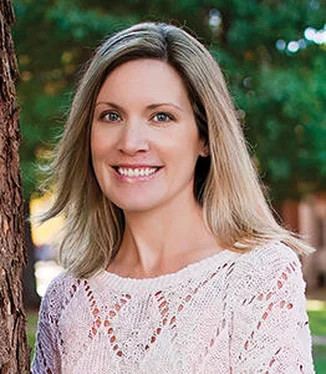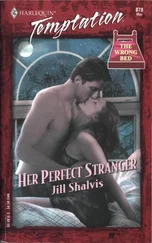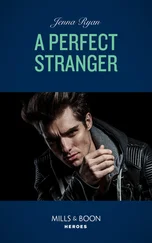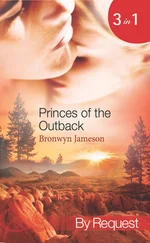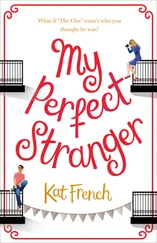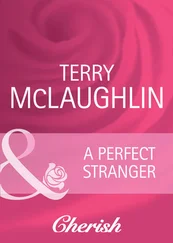According to the court report, he’d been drunk, passed out, when the blaze whipped through the home.
The look she’d given me that night I confessed on the floor of our apartment. The look that said, I understand. The mirror, reflecting back.
Emmy and I were similar, I thought. Then and now.
Something had made us run.
Something that eventually, when Bethany got out of prison, made her come back.
When Bethany got out, Emmy must’ve felt she owed her. Owed her eight years’ worth of life. She’d told her in that letter: I’ll be there when you get out. I’ll help. I promise.
And I had followed her. Followed her straight to the truth this time.
You can get there and not like the truth you find. Discover that the truth does not glimmer or shine or burn, or feel like ribs cracking open, a light escaping. That it can be the opposite. Bones folding in and over, as your body does the same.
When you realize that no one was who you thought.
When you stood in front of a sign for a roommate and thought the girl who took you in was salvation. When you constructed her that way, formed your edges around her. I had stood there, head pounding, ribs aching, unsure of everything in my life. I had stood there as no one.
And she had seen something in me, something familiar, something she could take and do with as she pleased. A face in a grainy picture that might belong to me instead.
Her friend, her cousin, in trouble. Who could bring Emmy down as well. A wave of nausea washed over me.
Do you believe in fate? she’d asked me once. She had. Of course she had. I’d turned up in front of her, eight years earlier, exactly what she needed.
A, B, or C, she’d asked. Do you help a friend in need, do you turn them in. All this time I thought she’d been asking where we stood, telling me exactly what we meant to each other. When really she was talking about someone else. A confession of her own.
Was she looking for me that night when I found her again? Why was she in that bar that night? The way she’d brushed up against me so I’d have to notice, making me turn and call, Emmy?
Bethany was someone she had always known.
I was the piece on the outside. A piece she needed. If I gave too much of myself, people would keep taking, Rebecca had said. And they did. They were.
I did not come first for Emmy. Not then, not now.
THAT NIGHT, WALKING BACKto my car from the library, I took the path from Government Center, the way I used to walk home. And then I went a little farther. Veering off Commonwealth, turning left down the second alley, as I had become accustomed to doing, by habit.
Then I placed my fingers on the familiar brick ledge, the cold seeping to my bones. The light slipping through the curtain. Pulled myself up on my toes to see her shadow.
THINGS COME BACK AROUNDbecause we go looking for them. That’s why they seem to pop back up over and over, like fate. Emmy running into me in the barroom because she was looking for me. Following me, coordinating the perfect time to pass by that would make me look, make me call out to her– Emmy?
I wondered if she’d been following me before that. Earlier that same night, six months ago, when I’d stood in this very spot.
On my toes, my hand on the concrete windowsill, in the dark. In the dark, nobody could see out, but I could see in. I had watched as Paige picked the baby up out of the high chair, wiped its face, held it on her hip.
Paige had stood in the kitchen as I watched that night. She’d stared up at the dark stairwell, as she’d done night after night since Aaron’s death. As if someone might come down the steps.
That was where he’d done it. He’d taken his pills, crushed up in the bottom of a glass of red wine, to dull his nerves or to steel his resolve. Standing on the other side of the window that night, before I saw him hanging, I saw the glass on the table. The single glass of red wine, mostly empty. I wondered if he used the stepladder I saw tucked in the corner next to the fridge. Or if he’d stepped over the staircase railing halfway up. How he was sure the banister would hold.
Paige had been humming a tune, shushing the baby. But her voice sounded too far, too dulled by the glass between us. On impulse, I’d held the phone to my ear, dialed their home line, heard the ringing inside. I’d seen Paige’s body stiffen. But then I’d heard footsteps racing behind me. I’d quickly hung up and spun around, staring into the shadows but seeing no one. I’d tucked my head down and kept to the shadows, darting around the corner and into the entrance of the nearest bar. So dark and hazy, my hands shaking with adrenaline as I ordered that first drink to still my nerves.
Maybe even then she was there. Watching.
Maybe she had tried before. Several times that day. On the subway; as I paid for my coffee. Maybe the day earlier in the aisle of the grocery store. Maybe she’d tried twenty times before I picked up my head and noticed.
Nothing so perfect can be left to chance alone.
Aaron showed back up because I was looking for him. I was always looking for him.
I searched every year, every month: Aaron Hampton.
Watched as he got his Ph.D. Married Paige, their smiling faces in the society section, the photo taken at the yacht club where her family were members. Boats and sails in the twinkling lights behind them.
I watched as he started teaching. I watched, and I waited, and every time I typed his name, I felt the darkness, the empty gap of time, into which I still, all these years later, cannot see.
That was the preamble and I craved the conclusion.
Until finally, finally, I had my story. Could see the connections, feel the pieces sliding around, could focus him clearly in my sights. A story I knew my boss would want, that the people would want. “Four suicides in one year,” I told Logan, and his eyes lit up like a spark.
The source. The source was a twenty-two-year-old female, just graduated, living with her best friend and her best friend’s boyfriend. I did not make her up. I changed some details to protect her identity. And I hid her away so nobody could find her.
They thought I did it to bring an innocent man down, but I did not.
I did it to give voice to that anonymous girl whom no one could identify. I did not regret it.
Truth and story – doesn’t matter which comes first as long as you get where you need to be at the end.
As long as you end at the truth, all’s fair.
Still – maybe I sometimes felt robbed by his death, as if he were still winning, still saying even from the other side: Can’t prove anything.
And so I’m still drawn to this window I know so well.
I could see curtains shifting now, a fan overhead, someone moving in the kitchen. And then a door creaking open, the outside light flipping on, bridging the gap between my world and theirs.
I pressed myself into the brick behind the stack of garbage bins, hoping she wouldn’t see me. But she had a garbage bag in her arm, and something crackled from her hip, radio static. A baby monitor. I held my breath, but I’d been cornered. She stood in front of the garbage containers, the trash dumped in, and said, “Turn around or I’ll call the police.”
So, what option did I have? I raised my hands in front of me, and I turned around.
She wordlessly sucked in a breath.
What can I say, really, about how Paige had changed through the years?
More so than I’d thought when she was just a shadow behind the curtains, with her lines and colors softened and filtered through the double-paned window. Or when she was just a whiff of a person moving through the crowd while I focused on the red ponytail in the distance, the smoothed-back part, the frizz she could never fully tame, on which she grew less and less compelled to try as time went on.
Читать дальше
